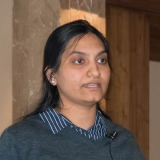The study will use household surveys from several African and Asian countries to examine how electricity reliability and quality, prices, gender dynamics, and other variables affect electric cooking uptake and reduce use of polluting solid fuels. These relationships may be mediated by various country-specific factors such as incomes, whether electrification is recent, cooking preferences, and so on. We will use qualitative country case studies to complement our econometric analyses to try and shed light on the factors that affect the uptake of electric cooking. We will primarily rely on the Multi-tier Surveys of the World Bank, and supplement these with other suitable and comparable household surveys. While we do not expect to be able to use any standard quasi-random variation for identification, the surveys contain quite rich information that will enable control for important confounders. We will use standard methods for bounding bias.
Electricity reliability and electric cooking: What can we learn from cross-national comparisons?
Project status
Active
Authors
Sustainable Development Goals
Financed by
Environment for Development initiative







